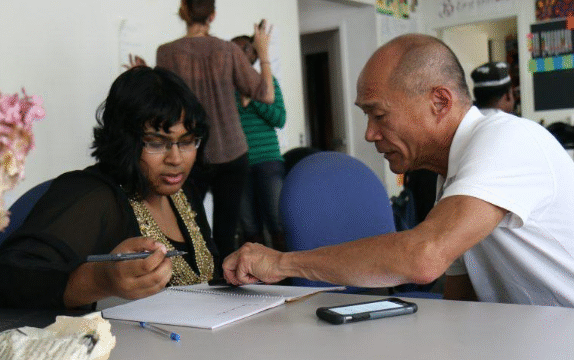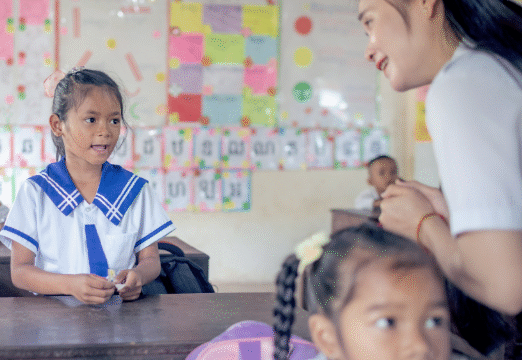Education has long been recognized as one of the
most powerful tools for personal growth and
community development. While governments,
non-governmental organizations, and private institutions play vital roles in expanding access to learning, faith groups have also been at the forefront of supporting education across the world. Their involvement stretches beyond providing resources, as they bring a spirit of service, compassion, and inclusion that enriches the educational experience for many communities.
Faith-based organizations often step in where educational opportunities are limited or where resources are stretched thin. In rural villages, urban centers, and developing regions, they provide schools, scholarships, mentorship programs, and after-school support. These efforts are rooted in values of service and the belief that every individual deserves the chance to learn, regardless of their background or circumstances. By focusing on both academic and moral development, faith groups help nurture responsible citizens who can contribute positively to society.
One of the most visible ways faith groups support education is through the establishment of schools. Many of the world’s oldest universities, colleges, and primary schools were founded by religious institutions with the goal of spreading knowledge alongside spiritual guidance. Today, this legacy continues as numerous faith-based organizations maintain schools that welcome students of all beliefs. These schools often operate in underserved areas where state-run education is not easily accessible, ensuring that children who might otherwise be excluded have a place to learn.
Scholarship programs are another significant contribution. Faith communities frequently raise funds to support children and young adults who cannot afford tuition, books, or uniforms. For many families, these scholarships make the difference between a child attending school or being forced to work at an early age. The generosity of these programs also extends to higher education, with faith groups offering financial support for college students, vocational training, and international study opportunities. This investment not only benefits individuals but also strengthens entire communities, as educated citizens are better equipped to secure employment and contribute to local development.
Beyond financial support, faith groups provide emotional and moral encouragement that is vital for learners. Many students face challenges such as poverty, social pressures, or lack of family support. In these cases, mentorship programs organized by faith communities can be transformative. Caring mentors, often volunteers, dedicate their time to guiding young people through personal and academic difficulties. Such mentorship builds confidence, instills discipline, and fosters resilience, all of which are essential for long-term educational success.
Faith groups also contribute to inclusive education by promoting values of respect and equality. In places where girls, children with disabilities, or marginalized groups face barriers to schooling, faith leaders often advocate for their right to learn. Sermons, community gatherings, and outreach programs help spread awareness of the importance of education for all, encouraging families to support their children’s schooling regardless of gender or circumstance. By championing inclusion, faith groups contribute to breaking cycles of discrimination and creating more equitable societies.
Another way faith communities enhance education is through after-school and supplementary learning programs. These may include tutoring sessions, literacy classes, and vocational training workshops. By offering safe spaces for learning outside regular school hours, faith-based centers give students the extra support they need to thrive academically. They also extend educational opportunities to adults who may have missed out on schooling earlier in life, reinforcing the idea that education is a lifelong journey.
In regions affected by conflict or natural disasters, faith groups often play an especially crucial role. When schools are damaged or unsafe, temporary learning spaces set up by local religious organizations provide continuity in children’s education. These groups frequently coordinate with humanitarian agencies to ensure that displaced families have access to basic learning materials and safe environments for their children. In such circumstances, education becomes not only a pathway to knowledge but also a source of hope and stability.
The role of faith groups in education is not limited to direct teaching and financial aid. Many are also strong advocates for policy changes that prioritize universal access to education. They collaborate with governments, international agencies, and civil society to push for reforms that improve educational infrastructure, teacher training, and curriculum development. By lending their voices to larger conversations about education policy, faith groups help shape systems that are more inclusive and effective.
The partnership between faith groups and other stakeholders in education demonstrates the importance of collaboration. While no single institution can solve all challenges, the combined efforts of governments, communities, and faith-based organizations create powerful synergies. Faith groups often bring a unique perspective rooted in service and compassion, complementing the logistical and financial capacities of larger institutions. Together, these partnerships move societies closer to achieving education for all.
Of course, the involvement of faith groups in education is not without challenges. Balancing spiritual teachings with academic priorities, ensuring inclusivity, and securing sustainable funding are ongoing concerns. However, many organizations continue to adapt, recognizing the importance of openness and diversity in modern education. By striving to serve all students equally, regardless of their beliefs, faith-based schools and programs build trust within communities and demonstrate that their commitment to education goes beyond religious affiliation.
The impact of faith groups on education can be seen in countless personal stories. A young student in a rural village may attend school because a local congregation raised funds for her tuition. A refugee child may find comfort and continuity in a temporary classroom organized by a faith-based relief agency. An adult who never learned to read may discover empowerment through literacy classes at a community center. Each of these stories illustrates how faith groups help open doors to opportunities that transform lives.
As the world continues to emphasize the importance of education in achieving sustainable development and equality, the contributions of faith communities should not be overlooked. Their work embodies the belief that knowledge is a universal right, not a privilege reserved for a few. By addressing both practical and emotional needs, faith groups create environments where learning is accessible, inclusive, and meaningful.
In reflecting on the many ways faith groups support education for all, it becomes clear that their role extends beyond simply providing resources. They inspire communities to value education, empower individuals to pursue knowledge, and promote a vision of a world where every person, regardless of background, has the chance to learn and grow. Education flourishes most when supported by compassion and collaboration, and faith groups remain a vital part of this global effort.






